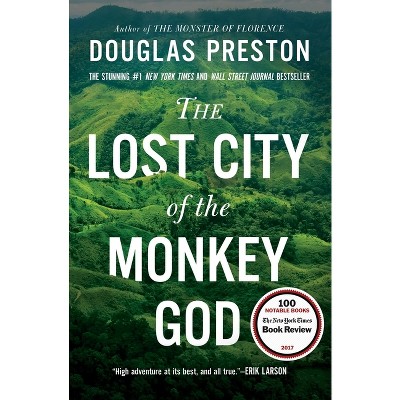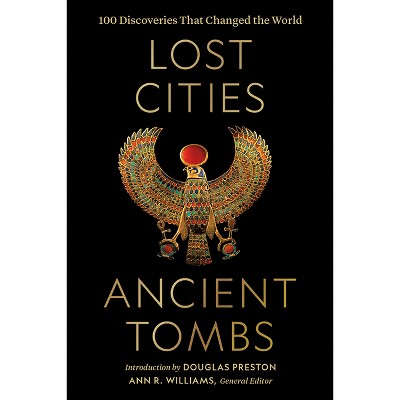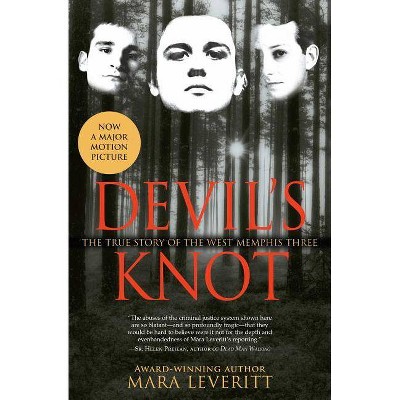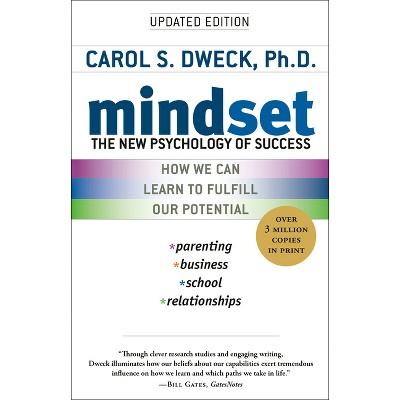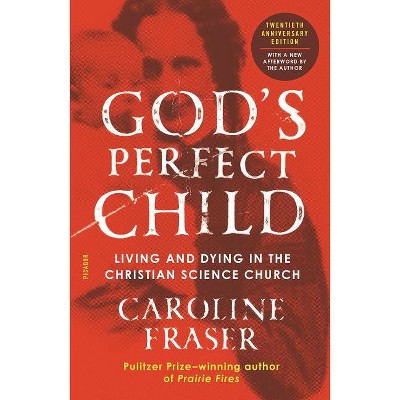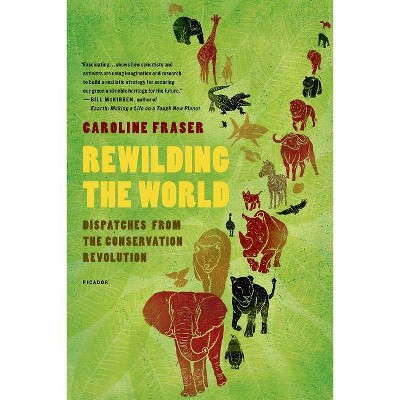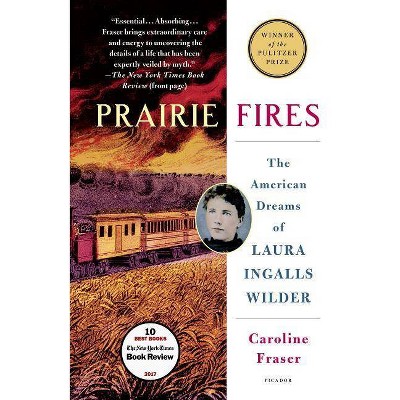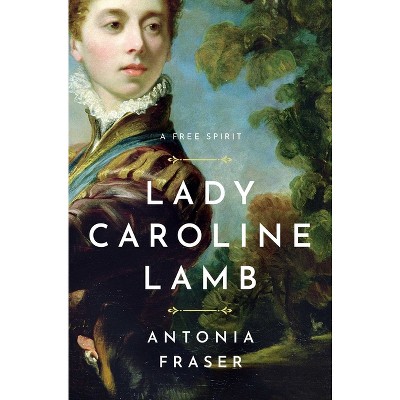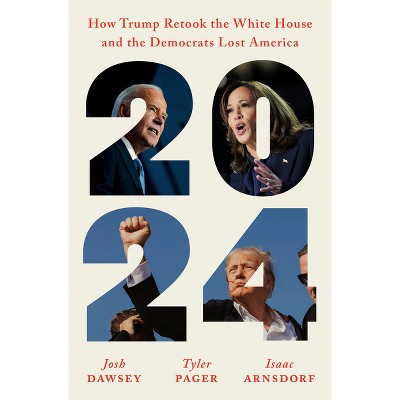$28.99 sale price when purchased online
$32.00 list price
Target Online store #3991
About this item
Highlights
- A National Bestseller "Scorching, seductive . . . A superb and disturbing vivisection of our darkest urges.
- About the Author: Caroline Fraser is the author of Prairie Fires: The American Dreams of Laura Ingalls Wilder, which won the Pulitzer Prize as well as the National Book Critics Circle Award, the Heartland Prize, and the Plutarch Award for best biography of the year.
- 480 Pages
- History, United States
Description
About the Book
"... maps the lives and careers of Bundy and his infamous peers in mayhem--the Green River Killer, the I-5 Killer, the Night Stalker, the Hillside Strangler, even Charles Manson--Fraser's Northwestern death trip begins to uncover a deeper mystery and an overlapping pattern of environmental destruction. At ground zero in Ted Bundy's Tacoma stood one of the most poisonous lead, copper, and arsenic smelters in the world, but it was hardly unique in the West. As Fraser's investigation inexorably proceeds, evidence mounts that the plumes of these smelters not only sickened and blighted millions of lives but also warped young minds, including some who grew up to become serial killers."--Provided by publisher.Book Synopsis
A National Bestseller "Scorching, seductive . . . A superb and disturbing vivisection of our darkest urges." --Los Angeles Times"This is about as highbrow as true crime gets." --Vulture
"Fraser has outdone herself, and just about everyone else in the true-crime genre, with Murderland." --Esquire From the Pulitzer Prize-winning author of Prairie Fires comes a terrifying true-crime history of serial killers in the Pacific Northwest and beyond--a gripping investigation of how a new strain of psychopath emerged out of a toxic landscape of deadly industrial violence Caroline Fraser grew up in the shadow of Ted Bundy, the most notorious serial murderer of women in American history, surrounded by his hunting grounds and mountain body dumps, in the brooding landscape of the Pacific Northwest. But in the 1970s and '80s, Bundy was just one perpetrator amid an uncanny explosion of serial rape and murder across the region. Why so many? Why so weirdly and nightmarishly gruesome? Why the senseless rise and then sudden fall of an epidemic of serial killing? As Murderland indelibly maps the lives and careers of Bundy and his infamous peers in mayhem--the Green River Killer, the I-5 Killer, the Night Stalker, the Hillside Strangler, even Charles Manson--Fraser's Northwestern death trip begins to uncover a deeper mystery and an overlapping pattern of environmental destruction. At ground zero in Ted Bundy's Tacoma stood one of the most poisonous lead, copper, and arsenic smelters in the world, but it was hardly unique in the West. As Fraser's investigation inexorably proceeds, evidence mounts that the plumes of these smelters not only sickened and blighted millions of lives but also warped young minds, including some who grew up to become serial killers. A propulsive nonfiction thriller, Murderland transcends true-crime voyeurism and noir mythology, taking readers on a profound quest into the dark heart of the real American berserk.
Review Quotes
"The product of vast research into the correlation between violent behavior and neurological damage associated with high levels of environmental pollutants (lead, asbestos, arsenic) in the blood, [Murderland] is an amalgam of true crime reportage, visionary muckraking in the tradition of Rachel Carson's Silent Spring (1962), and a startlingly candid memoir of Fraser's girlhood in the Seattle area in 'the time of serial killers'--both individual and corporate . . . A damning inventory of rapacious industrial pollution and sadistic serial killers . . . Though Murderland might be cataloged as ecojournalism, it is also a multi-true-crime narrative related in a breathlessly propulsive manner. Folded into the charges against corporate polluters like ASARCO are passages that fairly spring off the page . . . Commemorating the many victims of serial killers, many of them unnamed, unknown, Fraser's prose is lyrical, elegiac." --Joyce Carol Oates, The New York Review of Books "Murderland [is] an extraordinarily well-written and genre-defying blend of memoir, social and environmental history, and forensic inquest . . . Fraser's portrayal of the [Guggenheim] family is akin to my colleague (and friend) Patrick Radden Keefe's genealogy of the Sacklers, in his book Empire of Pain . . . Fraser's argumentative style is one of association, a vast crazy wall studded with murders and smelters and industrialists, yoked into patterns with skeins of gripping red yarn . . . Murderland is something of a moody masterpiece. Fraser is an outstanding social, cultural, and environmental historian, and she has an effortless way of turning pontoon bridges into villains." --Gideon Lewis-Kraus, The New Yorker
"Murderland is wonderfully propulsive and hard to put down." --The Atlantic
"In Murderland [Fraser] provides a detailed examination of the confluence of smelting, environmental pollution, poor highway design and murder in the region. It's a miasma of psychopathy on the individual level and greed on the corporate one that makes you wonder whether the definition of "serial killer" ought to be expanded." --Melissa Gray, NPR "[Fraser] is such a gifted writer. Reading her prose can be like skiing powder snow on a perfect day, one lovely turn after the other without really knowing where you're going . . . Fraser's book works best as a literary theme--crimes of industry choking the life out of the natural world, spawning crimes of the heart . . . The people who got rich off the poisons walked away unscathed, their names now kept alive in art museums and foundations. Though it's an old story, maybe even uniquely American, it is still one worth repeating." --The New York Times Book Review
"Murderland is, by design, an extremely disturbing book . . . The killers' individual stories are skillfully intertwined with suspenseful accounts of the eventually successful efforts to catch (most of) them . . . This propulsive narrative is buttressed by extensive research documented in voluminous footnotes. This is a cautionary tale, not a triumphal one, and Fraser closes with a passionate, angry passage whose biblical cadences ring with righteous fury. Carefully documented though it is, Murderland is at heart a cry of outrage." --Washington Post "[Fraser] thoroughly explores the so-called "lead-crime hypothesis" . . . Through her unique position of coming of age in Seattle during the era, Fraser's book marks the largest and most in-depth examination of the controversial theory so far." --TIME
"By overlaying a history of reckless industrialization and serial-killing, Fraser traces a narrative of intertwined crises -- a grand poisoning of the air, land, waters, and human souls of the nation. Murderland reads like Rachel Carson's Silent Spring meets Truman Capote's In Cold Blood, told through the hypnotic, unwavering gaze that is entirely Fraser's own." --Vulture "Fraser's research leads her past sensationalist headlines to an altogether more nebulous answer than you may expect, with farther reaching implications." --NPR.org
"Tough to classify and not to be missed: a history of the Pacific Northwest's most infamous, paired with a touch of memoir and a fascinating linking of homicidal tendencies with childhoods marked by industrial waste." --Chicago Tribune
"The Seattle native Caroline Fraser digs into the strange affinity of some of America's most notorious murderers for the Pacific Northwest in the 1970s and '80s. As she follows the terrifying careers of serial killers including Ted Bundy, she investigates the social and environmental factors that may have made this rain-soaked region such a fertile breeding ground for violence and mental illness." --Wall Street Journal "Fraser begins with a simple true-crime curiosity -- why did the Pacific Northwest have so many serial killers in the '70s and '80s? -- and expands her gaze to encompass the recent history of American industrialization and the hidden consequences of environmental degradation. The result is a scientific re-examination of Ted Bundy and his ilk, and the toxic chemicals that may have rotted their brains." --The New York Times
"In Murderland, Fraser returns to her own native landscape, the Pacific Northwest, to explore why the region has produced such a large number of serial killers. In this brooding and often brave book, the author finds evil afoot, but the worst monsters aren't who you'd guess." --The Boston Globe
"Scorching, seductive . . . The book's a meld of true crime, memoir and social commentary, but with a mission: to shock readers into a deeper understanding of the American Nightmare, ecological devastation entwined with senseless sadism. Murderland is not for the faint of heart, yet we can't look away: Fraser's writing is that vivid and dynamic . . . Murderland is a superb and disturbing vivisection of our darkest urges." --Los Angeles Times
"This is about as highbrow as true crime gets." --Vulture
"In this noir-ish reportage on the serial killers produced by the Pacific Northwest (along with the implications of its environmental wreckage), Fraser gives David Lynch a run for his money." --Vanity Fair
"Fraser has outdone herself, and just about everyone else in the true-crime genre, with Murderland . . . Fraser bird-dogs the trails of the Green River killer, Ted Bundy, the I-5 killer, the Hillside Strangler, and others, leading the way with splendid research. Look for Murderland to garner Fraser new awards." --Esquire
"From Ted Bundy to the Green River Killer, the I-5 Killer, the Night Stalker, the Hillside Strangler and even Charles Manson, the Pulitzer Prize-winning author of Prairie Fires charts the uncanny explosion of serial killers in the Pacific Northwest through the '70s and '80s. It reads like a novel, with all of the juicy details and propulsive plot we love in our favorite thrillers." --People
"The sharp, incandescent book tells a gripping, unconventional history of crime and industrial wrongs, including a toxic legacy of lead and arsenic from a Tacoma smelter that may have contributed to the monstrous murders." --Seattle Times
"Murderland is not for the faint of heart . . . Riveting . . . [Fraser] has a terrific eye for telling -- and, usually, horrifying -- details. Fraser's book has outrage and attitude." --Minnesota Star-Tribune
"Murderland is perfect for true-crime lovers--and even true-crime critics . . . We haven't yet had enough of true-crime books about notoriously infamous serial killers like Ted Bundy, Charles Manson, and the Night Stalker. At least not if the author is a Pulitzer Prize-winning journalist like Fraser, whose microscopic lens and flair with words are always enticing." --AV Club
"Pulitzer Prize winner Caroline Fraser returns with Murderland, a true crime history of serial killers in the Pacific Northwest . . . It's a fascinating investigation into how a new strain of psychopath emerged out of a toxic landscape of deadly industrial violence." --Town & Country "A strange and compelling tale . . . Initially, Murderland seems as crazy as the killers it portrays. But Fraser, a Pulitzer Prize-winning author, has the skills to pull it off, and once she gets going, the theory she espouses seems plausible." --Washington Independent Review of Books "[Fraser] makes a case that isn't merely convincing; it's downright damning, showing how lead seeped into literally every aspect of life for those who lived near a smelter--and even for those who didn't--via leaded gas and paint. Fraser follows the exploits of the similarly deadly and devastating serial killers and ASARCO (American Smelting and Refining Company) in a narrative that is gripping, harrowing, and timely." --Booklist (starred review) "What makes a murderer? Pulitzer winner Fraser (Prairie Fires) makes a convincing case for arsenic and lead poisoning as contributing factors in this eyebrow-raising account . . . her methodical research and lucid storytelling argue persuasively for linking the health of the planet to the safety of its citizens. This is a provocative and page-turning work of true crime." --Publishers Weekly (starred review) "Riveting . . . True crime fans will find Murderland a ravenous read." --BookPage "A provocative, eerily lyrical study of the heyday of American serial killers. From the 1940s through the 1980s, the number of serial killers in the U.S. rose precipitously, and the Pacific Northwest was, disproportionately, home for them . . . Fraser's book is an engrossing and disturbing portrait of decades of carnage that required decades to confront. A true-crime story written with compassion, fury, and scientific sense." --Kirkus (starred review) "A blend of memoir, biography and history, Murderland is [Fraser's] argument for why she had so many murderous neighbours: uniquely high lead poisoning. The lead-crime hypothesis is not new. Many scientific studies have fleshed out how childhood lead exposure is associated with aggression, psychopathy and crime . . . But Fraser is the first to apply the theory to America's serial killers. Drawing from a large array of data, she makes her case with conviction . . . Murderland reads like a true crime thriller." --The Times (UK) "This book is a mapping, of murderers and their victims, yes, but also of the battle between nature and society, a battle staged out on the edge of America and in the hearts of the people who live there. It started by trying to understand why so many killers come from the Pacific Northwest but by the end it had cracked open the most taboo corners of the American psyche. This story is a menace and a beauty. It left me deeply unsettled--by the idea of monsters, by the myth of free will, and by all the realms of cause and effect that remain unexplored." --Wright Thompson, New York Times bestselling author of The Barn: The Secret History of a Murder in Mississippi
About the Author
Caroline Fraser is the author of Prairie Fires: The American Dreams of Laura Ingalls Wilder, which won the Pulitzer Prize as well as the National Book Critics Circle Award, the Heartland Prize, and the Plutarch Award for best biography of the year. She is also the author of God's Perfect Child: Living and Dying in the Christian Science Church, and her writing has appeared in The New York Review of Books, The New Yorker, The Atlantic, Los Angeles Times, and London Review of Books, among other publications. She lives in New Mexico.Dimensions (Overall): 9.4 Inches (H) x 6.5 Inches (W) x 1.7 Inches (D)
Weight: 1.5 Pounds
Suggested Age: 22 Years and Up
Number of Pages: 480
Genre: History
Sub-Genre: United States
Publisher: Penguin Press
Theme: State & Local, Pacific Northwest (OR, WA)
Format: Hardcover
Author: Caroline Fraser
Language: English
Street Date: June 10, 2025
TCIN: 1001836595
UPC: 9780593657225
Item Number (DPCI): 247-00-8203
Origin: Made in the USA or Imported
If the item details above aren’t accurate or complete, we want to know about it.
Shipping details
Estimated ship dimensions: 1.7 inches length x 6.5 inches width x 9.4 inches height
Estimated ship weight: 1.5 pounds
We regret that this item cannot be shipped to PO Boxes.
This item cannot be shipped to the following locations: American Samoa (see also separate entry under AS), Guam (see also separate entry under GU), Northern Mariana Islands, Puerto Rico (see also separate entry under PR), United States Minor Outlying Islands, Virgin Islands, U.S., APO/FPO
Return details
This item can be returned to any Target store or Target.com.
This item must be returned within 90 days of the date it was purchased in store, shipped, delivered by a Shipt shopper, or made ready for pickup.
See the return policy for complete information.
Guests also viewed
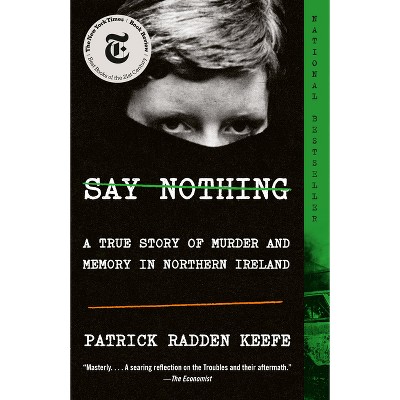
$14.00 - $23.03
MSRP $16.95 - $34.00
4.5 out of 5 stars with 2 ratings
Discover more options
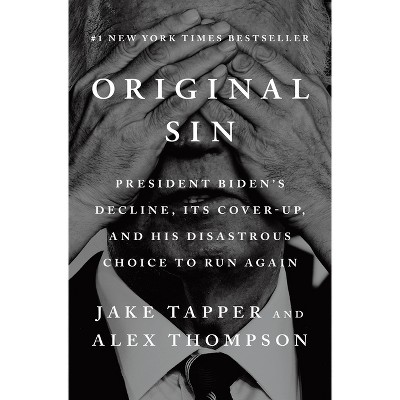
$22.89
was $27.00 New lower price
3 out of 5 stars with 10 ratings

